Canceling my classroom simulations
Teaching historical simulations were all the rage when I began my career. Now? I simulate with extreme caution. Also, unrelated, I paddleboarded this week.
A book to read: THE ASSIGNMENT by Liza M Wiemer
In 1942, big-wigs in Hitler’s Nazi Germany hunkered down in Villa in Wannsee to discuss and plan the "Final Solution." This was where the genocide and extermination of the Jewish population was planned and organized. Chilling stuff.
In Liza Wiemer’s book, a young adult contemporary novel titled THE ASSIGNMENT, two teenagers (Cade and Logan) are assigned to learn about the Wannsee conference via a historical simulation. Their teacher separates the class into groups, and some students are tasked with writing arguments to “convince” their classmates to exterminate Jews. The teacher’s idea is that you must put yourself in the shoes of historical figures to understand their mindset and ultimately learn from the mistakes of history.
In the book, Cade and Logan stand up to their teacher (and some of their classmates) to protest the assignment, arguing that the assignment leads to anti-Semitism.
I REALLY wanted to like this book. It has such an interesting premise and was based on a a real-life classroom assignment.
But I didn’t love the book.
It seems like one of those books that adults like but actual teenagers don’t vibe with. The protagonists are not the dynamic, nuanced, voice-y teens that we expect in contemporary YA. Cade and Logan claim to feel typical teenage insecurity, but are somehow able to passionately argue their points like well-trained lawyers (or, like an author who’s written their speeches and had them professionally edited).
The book doesn’t have any clever scenes, moments of lightness, and the antagonists are super one sided. Cade and Logan’s classmates joke about Aryans and practically sympathizing with Nazis in a way that doesn’t feel authentic to teens, but written purely to serve the point of the book. It gave the book a preachy feel. There just wasn’t enough nuance in the book to make the characters interesting.
The romance in the book is sweet, but nothing memorable and the ending is way-too-convenient and feels rushed.
Still.
Even though I didn’t love this book, it has REALLY stuck with me. I read it for the first time back when it came out in 2020 and I still think about it all the time. I changed my classroom practices because of this book.
Maybe that makes it a great book after all.
A lesson to teach: Not a simulation
On some level, I get what the fictional teacher in the book is going for. It is indeed important to learn about genocidal dictators so we don’t vote for them in November. Just like it’s important to learn about racism in order to combat it today, it’s also necessary to learn about how Hitler convinced so many people to “just follow orders.”
Having students argue in favor of genocide though, is obviously not a good idea.1
Boy, did this book did get me thinking about classroom simulations. I used to have my students participate in a mock Berlin Conference. Although my student’s speeches dealt mostly with land rights (they certainly didn’t argue for genocide, as students were expected to in THE ASSIGNMENT), the outcome of the actual Berlin Conference was colonialism all the horrors that go with it.2 As I was reading THE ASSIGNMENT, all I could think about where those years I spent teaching the Berlin Conference via simulation.
Here’s the thing: Students LOVED the Berlin Conference. Year after year, I’d hear from graduating seniors that it was one of the most memorable assignments of their entire high school career. And after the Berlin Conference, my students studied different African resistance leaders.
But I can’t do it anymore.
After reading THE ASSIGNMENT I shortened the simulation to a 15 minute student-led-lecture in which I gave students each a short paragraph to read as I drew a map of colonial Africa based on their readings. (Here are the student parts if you are interested)
The next year, I ended up cutting that from my curriculum as well. I just couldn’t stomach the thought that some of my students might feel like Cade and Logan.
The thing is, simulations are fun. Students love them, they usually learn a ton, and it’s a memorable experience. But if it means accidentally promoting colonialism, simulations will have to get the axe.
For WAY more thoughts on simulations, check out this Visions of Education podcast wherein Bretton Varga and Erin Adams discuss their article published in Theory & Research in Social Education, “Theorizing mimesis across social studies contexts of mimicry, imitation, and simulation.”
A place to visit: Phantom Lake and Larsen Lake
Know what else is a memorable experience and doesn’t promote colonialism? Paddleboarding!
Was that a smooth transition or WHAT?!?
I know, I know. Usually, I try to make my lesson, book, and travel experience all line-up, but I’ve never been to Wannsee, Germany.
Therefore, paddleboarding it is.
Last month, I declared my intentions to paddle all fifty lakes named in this picture here.
One day after this proclamation, it rained for a month.3 Today though, I found several spare hours on a partly sunny day to go paddle.
My first stop was at Larsen Lake.
Well, shoot. I did not consider that some lakes ban paddling. I made a quick decision to either paddle OR run around each lake, switched my flip-flops for running shoes, and hit the gravel trail.
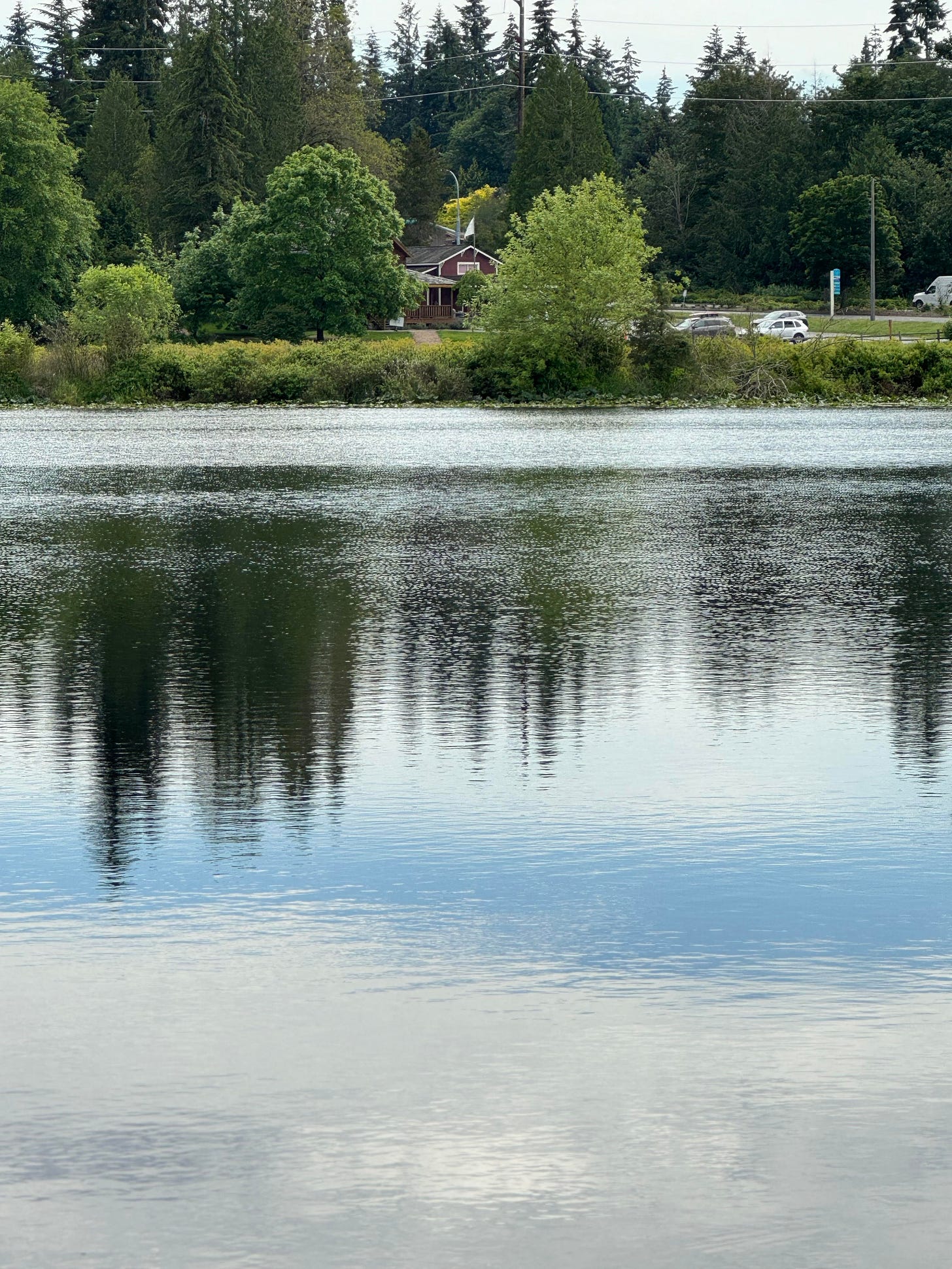
After a quick .8 mile jog around the teeny lake (does that even count as a workout?), I checked out the historical plaques about Ove and Mary Larsen, Danish immigrants who settled here in the 1880s.
Mary and the kids sold blueberries and Ove worked in the Newcastle coal mines, a situation I know all about thanks to Robin Oliveira’s book A WILD AND HEAVENLY PLACE.
There is still a u-pick blueberry farm around the lake, which I have no need of as my mom has about a dozen blueberry bushes that I steal for free all summer long (thanks mom!)
After my jaunt around the lake (I think the word pond might be more appropriate here), I hopped in my board-topped minivan and headed for the bigger lake a couple miles down the road. And enjoyed a lovely paddle around Phantom Lake.
Two lakes down, forty-eight to go!
Happy travels, paddles, reading, and teaching y’all! Let me know your thoughts on teaching simulations and see you next week :)
Also, according to The United States Holocaust Memorial Museum, “The men at the table [at the Wannsee Conference] did not deliberate whether such a plan should be undertaken, but instead discussed the implementation of a policy decision that had already been made at the highest level of the Nazi regime.” Therefore, the assignments isn’t really historically accurate anyway.
In 1884, European nations got together in Berlin to divide up Africa amongst themselves, which is obviously problematic. At the Conference, Belgian ambassadors argued that King Leopold should have personal custody of the colony of Congo, so that he could “bring the light of civilization” to Africa. In reality, King Leopold killed 10 million Congolese in his quest for rubber profits.
More or less. I’m sure there were some partly cloudy days in there on days I didn’t have time to take the board out.

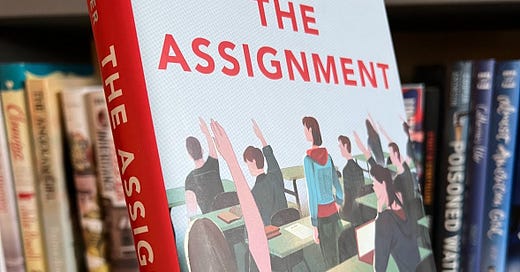


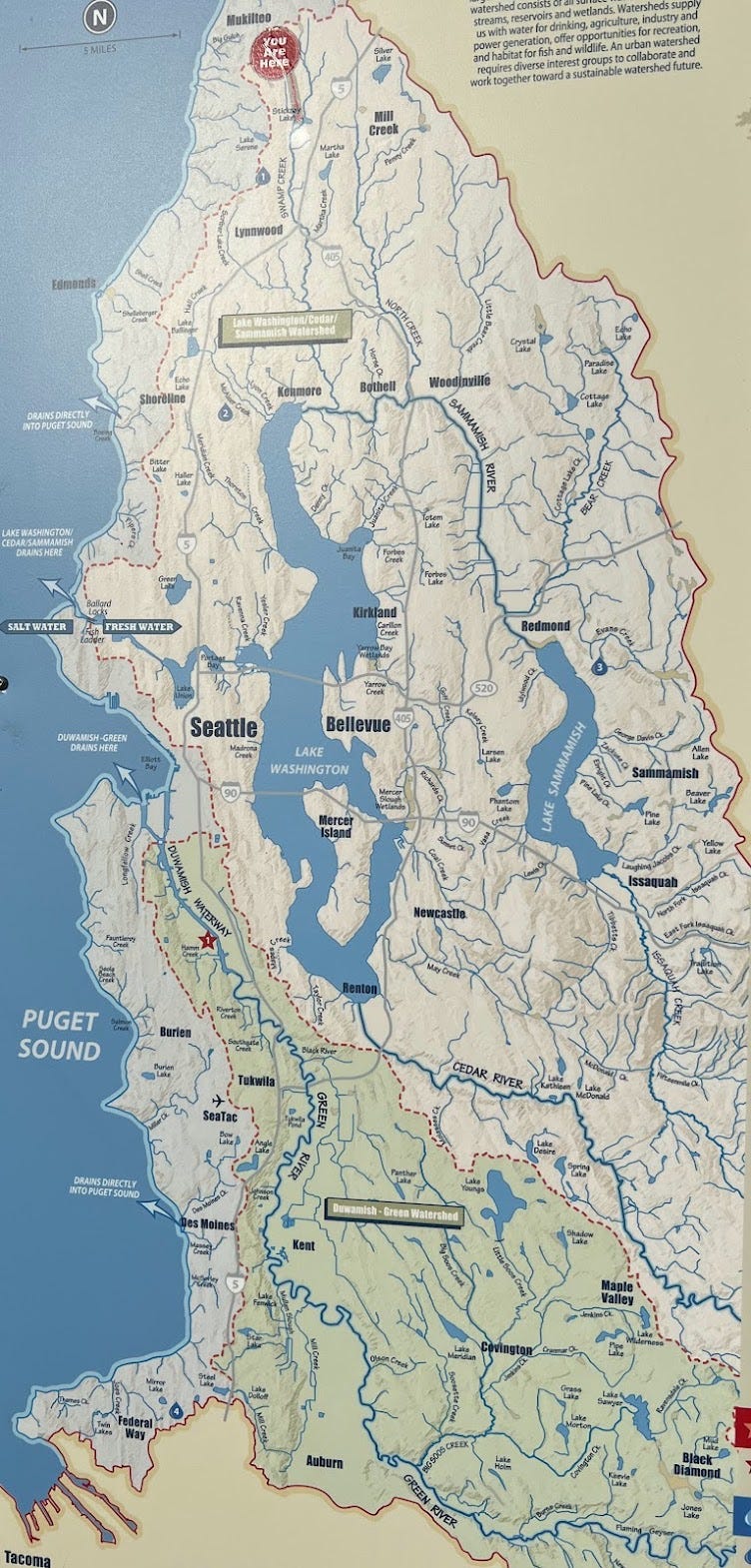
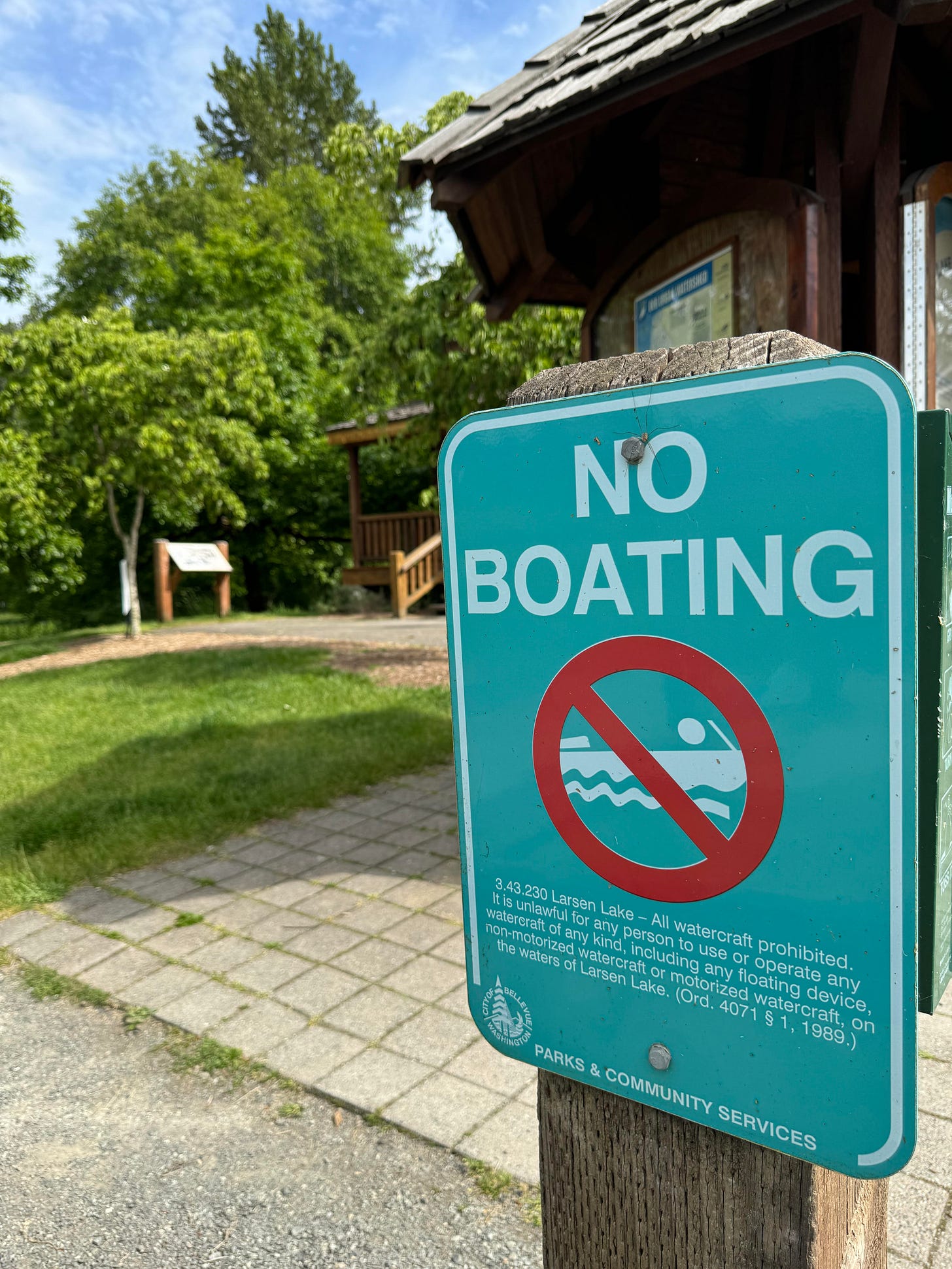
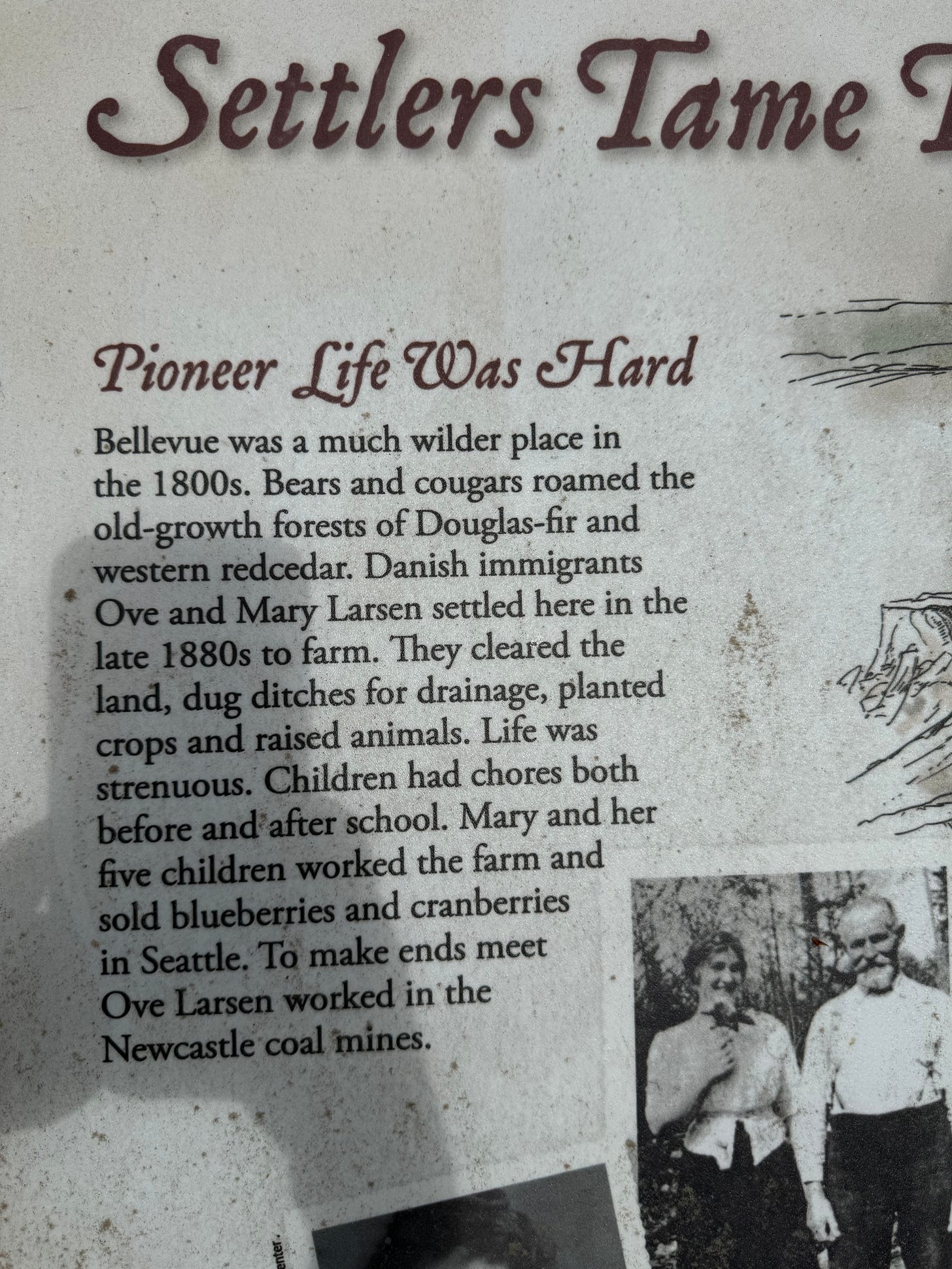
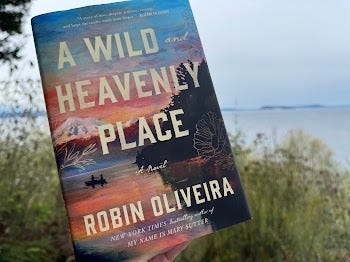
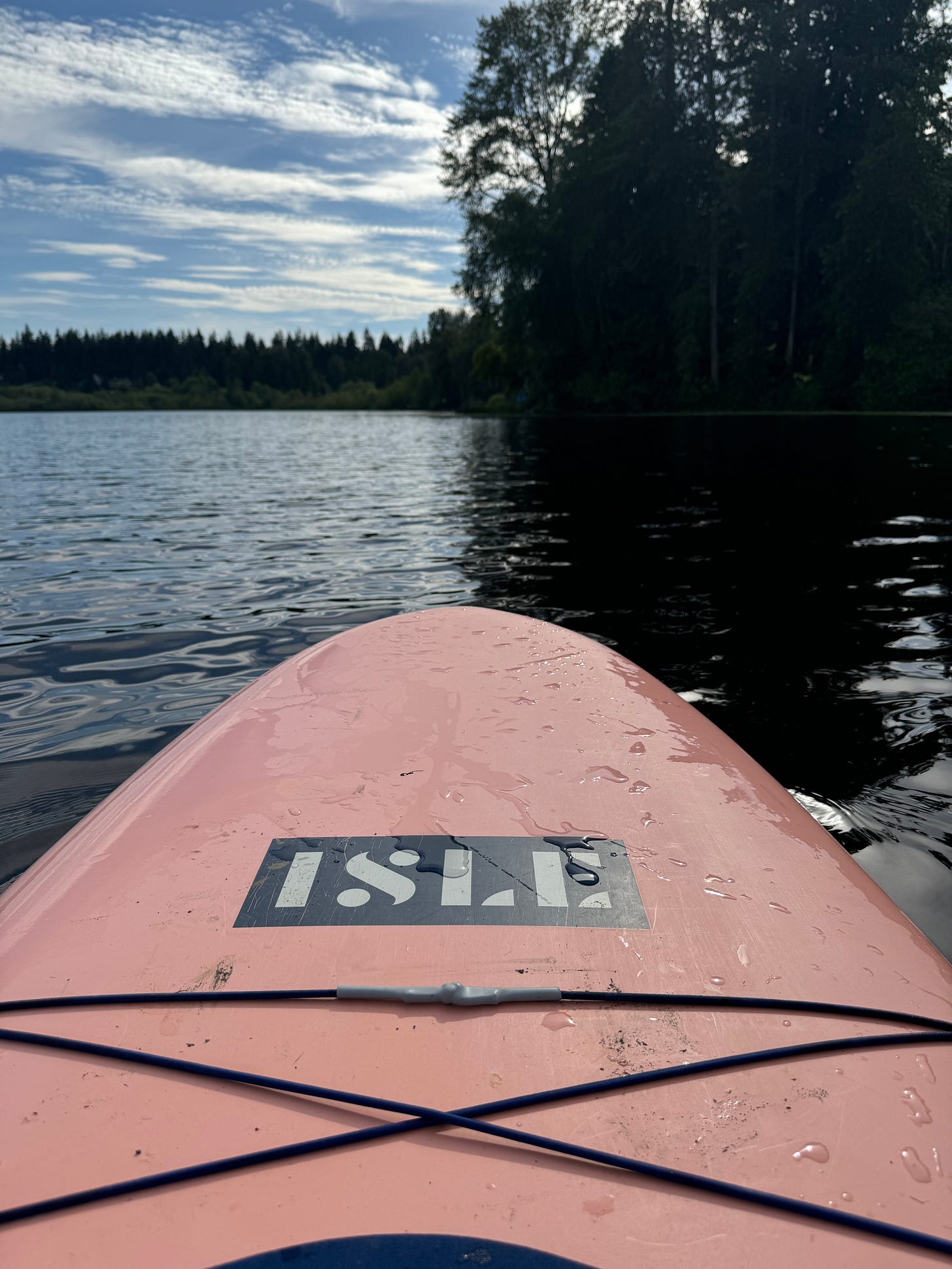
I stay away from simulations, too. Sometimes I will take a pre-made one from the Zinn Ed Project, but I always adapt them to remove any re-enactment elements. I usually do a sort of hybrid jigsaw where the students analyze the different groups or individuals and make posters about them.
I'm glad that I am not the only one feeling this way!
I went to two conferences hosted by the USHMM and both times they were adamant that simulations did more harm than good. Then I thought back to my student teaching experience in US history. The curriculum was VERY experience heavy and I had to teach a lesson about WWI and trench warfare by having the students make "trenches" with their desks and sit in the "trenches" while I read an excerpt from All Quiet on the Western Front. It was...dumb. And ineffective. And I'm pretty sure the kids didn't learn a thing. I have refused to use simulation methods for over 15 years as a result.